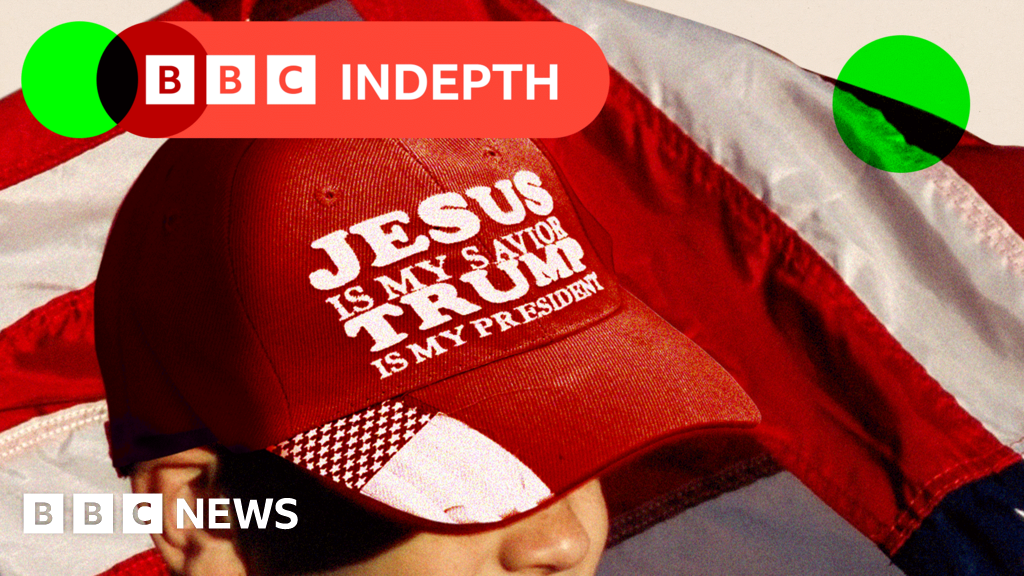On the night of the election in a Florida convention centre, with a row of American flags behind him and a jubilant crowd looking on, Donald Trump declared that many people had told him God spared his life for a reason – to save the country and restore its greatness. This theme of being chosen by God was prominent throughout his campaign. Even before an attempt on his life in Pennsylvania, many Americans felt guided by their faith to support him. Some even likened him to a Biblical figure.
Actor Jim Caviezel, who played Jesus in The Passion of the Christ, jokingly called Trump the “new Moses”, while others referred to him as a “saviour”. Despite not being known for having a strong faith, many saw Trump as sent from God. This raises questions about why he was perceived this way and what it says about Christianity in a country where church attendance is declining.
Reverend Franklin Graham, a prominent evangelist, believes without a doubt that Trump was chosen by God for his mission. Despite questions about Trump’s character, including allegations of sexual misconduct, Graham believes in forgiveness and redemption. Trump’s appointment of anti-abortion judges to the Supreme Court further solidified Graham’s belief in his integrity.
However, not all Christians in the US share this view. Reverend Monte Norwood, for example, believes Trump has demeaned and debased various groups and sees his re-election as hypocritical. Norwood, a Matthew chapter 25 Christian, focuses on helping the marginalized and vulnerable.
The decline in church attendance in the US has been a factor in Trump’s appeal to some Christians. He promised to restore power to Christian churches as their numbers are dwindling. This message resonated with many white Christian voters, who have historically leaned towards the Republican Party.
Despite Trump’s appeal to traditionalist Christians, demographic changes in the US, including a growing number of religiously unaffiliated individuals, indicate a shift away from faith. While Trump’s campaign tapped into nostalgia and a sense of loss for some Christians, the future of faith in the US is evolving alongside broader societal changes.

